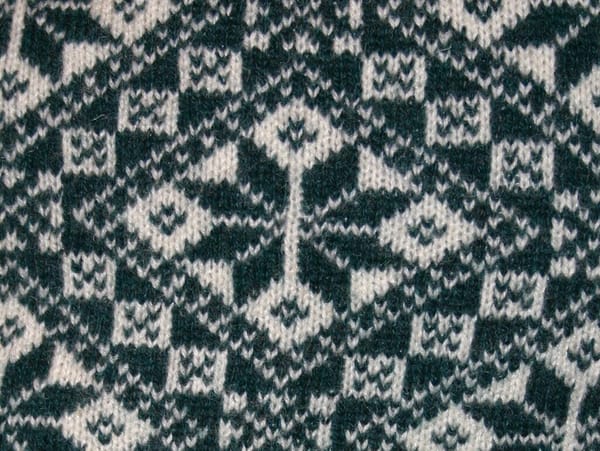Reclamation & Dancing To Prison
What happens to the natural world when people disappear? Also, innocents caught up in the Strike Hard Against Crime Campaign.

Featured Articles
The great abandonment: what happens to the natural world when people disappear?
The Guardian • 28 Nov 2024 • ~4100 words
Across the globe, vast swathes of land are being left to be reclaimed by nature. To see what could be coming, look to Bulgaria.
When people imagine ecosystems recovering, this return to forest is often what springs to mind. But forests only represent a small sliver of possible habitats. For other species, the currency of life is light, and a dense, closed canopy of forest is impossible to survive. A swallow is perfectly adapted to vast, open fields: the curve of its wings and distinctive forking tail designed for fast pursuit of insects hovering above meadows. A starling murmuration, moving across the sky like spilled pepper over a tablecloth, is an adaptation to open fields: repelling predators, protecting the roost. Vast numbers of species adapted and co-evolved with these open places – plants, mammals, insects, grazers, species like wildflowers, that relish disturbance and light. The rich biodiversity of open grasslands can be even greater than that of temperate forests.
Dancing To Prison
China Books Review • 27 Nov 2024 • ~4350 words
1983’s Strike Hard Against Crime Campaign led to the arrests of many innocent victims, caught up in a culture of fear. One of them was imprisoned for organizing an unofficial dance party — until he broke out in a daring escape.
If you were convicted in the Strike Hard Campaign, it was impossible to be declared innocent. This is the logic of the Communist Party. No matter if you appeal and refuse to accept your guilt, no matter how hard you work, your sentence will not be reduced. So, given the massive momentum behind the Strike Hard campaign, and despite the ever-growing pile of unjust cases, very few people dared to risk filing a complaint. I had to go along with the prevailing custom.
Recommended Articles (8 Articles Today(
A Place for Grief
Commonweal • 25 Nov 2024 • ~2900 words
Why we still need graveyards.
Her work on virtual afterlives began as a study of martyrs and the cult of the saints. She noted how the physical presence of the body, or part of the body, of someone who had led a saintly life conferred a kind of sacrality on the place of rest, as if there was a sacred presence even in death. This was the closest I had come to a confirmation of my sense that what was missing in cremation and the scattering of ashes was a recognition of a physical space as a site of personal presence. My family and I certainly mourned my wife’s death, and we have developed rituals for memorializing her life. But these traditions of mourning and memory have lacked a physical dimension.
A Revolution in How Robots Learn
The New Yorker • 25 Nov 2024 • ~7100 words • Archive Link
A future generation of robots will not be programmed to complete specific tasks. Instead, they will use A.I. to teach themselves.
We can tie shoelaces better than ALOHA not because it has primitive, unsensing claws but because every shoe—every arrangement of laces, the way they bend and fall each time you lift them—is different. There is no Internet-size archive of the ways in which physical objects interact. Instead, researchers have come up with several competing methods of teaching robots.
The whole story of human evolution – from ancient apes via Lucy to us
The Conversation • 25 Nov 2024 • ~6200 words
Our understanding of human ancestry has changed dramatically since the discovery of Lucy the ancient hominin 50 years ago. Here is the history of humanity as we know it today.
Until the 1980s, our species was thought to have first appeared around 40,000 years ago in a “human revolution” – an explosion of creativity marked by the flowering of cave art and sophisticated tools. However, many events in this analysis were incorrectly concertinaed together by a ceiling in radiocarbon dates, which the rapid decay rate of carbon-14 limited to a maximum age of about 40,000 years. Since then, new dating techniques based on other radioisotopes and new finds have expanded the timescale for the existence of Homo sapiens by almost a factor of ten. In fact, the first early modern humans, closely resembling us, appeared about 300,000 years ago in northern and eastern Africa. This drastic change of timescale alters our perspective in ways that are still being explored.
Portrait of the Artist as an Amazon Reviewer
The New Yorker • 27 Nov 2024 • ~2650 words • Archive Link
Between 2003 and 2019, Kevin Killian published almost twenty-four hundred reviews on the site. Can they be considered literature?
It’s tempting to interpret Killian’s Amazonian doppelgänger as an ironic burlesque of the online shopper. In the mid-two-thousands, when Killian was at his most prolific as a reviewer, it was becoming clear that Amazon was contributing to the destruction of the type of creative life that he enjoyed. Was this his way of queering e-commerce, subverting the platform from within? Wayne Koestenbaum argues, in his foreword to the collection, that Killian’s reviews “Occupy Amazon” with “a radical-faerie insouciance. . . . He enacts a cosmophagic critical practice, doing a Sontag but without the severity.”
The Land That Allowed Ken Burns to ‘Raise the Dead’
New York Times • 27 Nov 2024 • ~2450 words • Archive Link
The award-winning filmmaker has slept in the same bedroom for over four decades. He credits his home with allowing him to make the films everyone said he couldn’t.
The filmmaker remembers the exact moment when he decided what he wanted to do with his life: He had never seen his father cry — not in all the years his mother had fought an excruciating illness, not even at the funeral — until one night after her death. His family was in the living room in front of their black-and-white TV, watching a movie, and suddenly his father began weeping.
The Great American City Upon a Hill Is Always Under Construction
Reason.com • 28 Nov 2024 • ~2500 words
American history is often a story of people leaving to try to build their voluntary utopias.
The city was willed into existence by Tom Monaghan, founder of Domino's Pizza. After selling his stake in the chain for $1 billion, Monaghan—a devout Catholic and collector of Frank Lloyd Wright memorabilia—set out to design an idyllic Catholic town, a community free of "premarital sex, contraceptives and pornography." After an opening stint in Michigan, the university reopened in Florida in 2007; today, over 6,000 residents call the place home. More are on the way: Last year, Collier County signed off on a thousand-acre expansion of the city. Maybe Ave Maria sounds like a nightmare, a prison of patriarchy and conformity. Or maybe it sounds like a dream, a safe space for family and communion, far from the modern Sodom of Miami. Whichever way you fall, you should be happy that towns like Ave Maria exist. Cities like this could not be built in most other developed countries—or many other states, for that matter. Ave Maria is yet another entry into a homegrown American tradition of endlessly trying, and often failing, to break away and build a voluntary utopia.
Health Equity Capture
The New Inquiry • 27 Nov 2024 • ~4500 words
How the weight-loss industry Uses Black celebrity in the Ozempic era.
The mainstreaming of weight loss medications into primary care—for example, by uniform insurance coverage—would worsen the lives of fat people through two main mechanisms. The first is through clinical harm. Uniform coverage of weight loss medications would essentially result in most, if not all, fat people being funneled into pharmaceutical treatment for their “obesity” regardless of whether or not they want to be. Compliance with these medications, if accepted as some kind of frontline treatment for all fat patients, could be the difference between fat patients getting care they actually need and being ignored. The withholding of needed care until future weight loss already happens, but this would exponentially worsen if there was an alternative that was “just a shot” or “just a pill” that was reported to guarantee weight loss.
The crime messenger
CBC • 26 Nov 2024 • ~6400 words • Archive Link
Criminals around the world using Canadian encrypted phones thought they were operating under the radar. But European police managed to intercept their messages and crack the code, leading to thousands of convictions. Radio-Canada’s Enquête reveals how some of the Vancouver company’s top distributors of the Sky ECC phones were connected to the criminal underworld.
In 2019, at Europol’s headquarters at The Hague, police from Belgium, the Netherlands and France secretly planned a massive police operation to intercept messages between Sky ECC users. “We go after the criminals and after the tools criminals use to facilitate their business activities. We need to have access to the data,” said Europol’s head, Catherine De Bolle. The servers Sky used to relay its users’ messages were in a big data centre belonging to OVH Cloud in Roubaix, France. Authorities convinced a French judge to allow them to undertake one of the largest mass interceptions of data ever achieved and put more than 160,0000 Sky app accounts under surveillance.




